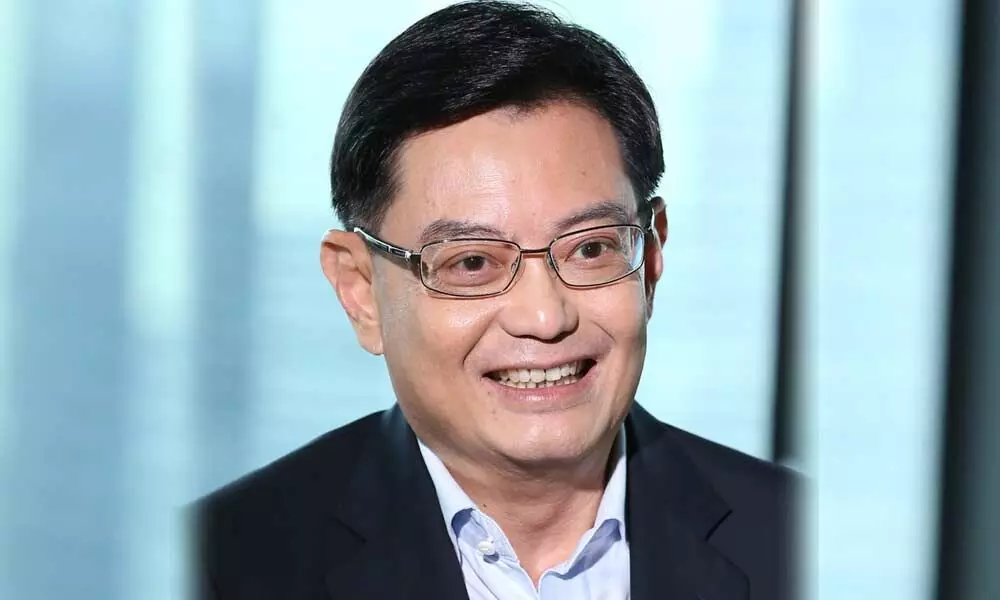Singapore politics boring? No, turns exciting after royal twist
Heng’s problem might not be so much his own years but how his birthdays fit with Lee’s timeline. After the pandemic struck, Lee added a caveat to his pledge of retirement around 70. He said he wanted to see Singapore through Covid before handing over the nation in good shape
image for illustrative purpose

EARTHQUAKE analogies aren't often deployed in discussion of Singapore politics. The upending of leadership succession plans revealed on Thursday when Heng Swee Keat bowed out as the country's heir apparent rates as a decent seismic event.
Groomed to be Singapore's next prime minister, Heng's surprise withdrawal leaves room for incumbent Lee Hsien Loong to stay on well beyond his 70th birthday in February. That was what Lee hoped to avoid when he said he hoped to hand the reins to the so-called fourth generation of leaders. (The shorthand for this younger cohort of lawmakers is 4-G.)
Lee is Singapore's third prime minister and son of the first, Lee Kuan Yew. Leadership changes -there have been only two since the country became independent in 1965 - have been carefully choreographed, the anticipated transition sown in the public's mind well before the baton is passed. Heng's ascent appeared sealed when he secured a top position in the ruling People's Action Party in 2018 and became deputy prime minister a few months later. As part of Thursday's shakeup, Heng also gives up the job of finance minister.
It may take a while for the new next-in-line to emerge, though there will be a cabinet reshuffle in a few weeks. Prominent 4-G ministers include Trade and Industry Minister Chan Chun Sing, also one of the senior office holders in the party organisation. Another is Transport Minister Ong Ye Kung. Education Minister Lawrence Wong, co-chair of the country's Covid-19 taskforce, was the public face of the fight against the pandemic and may also be a contender. Senior Ministers Teo Chee Hean and Tharman Shanmugaratnam aren't 4-G and, consequently, aren't considered candidates.
Heng cited his age - he's almost 60, older than many of the 4-G crowd - in his resignation letter. That's far from ancient for a new leader. Donald Trump became US president at 70; Joe Biden is 78; and Japanese Prime Minister Yoshihide Suga was 71 when he took over in September.
Heng's problem might not be so much his own years but how his birthdays fit with Lee's timeline. After the pandemic struck, Lee added a caveat to his pledge of retirement around 70. He said he wanted to see Singapore through Covid before handing over the nation in good shape. Heng said Thursday that he would be "close to the mid-60s when the crisis is over." There's squishiness in that language, though five years from now is a pretty long recovery. The next election is due in 2025.
It's ironic that Covid appears to have undone Heng, who survived a stroke that felled him during a cabinet meeting in 2016. As finance minister, he unleashed a handful of stimulus packages in an effort to put a floor under the recession. Singapore's contraction in gross domestic product last year was 5.4 per cent, a bit less than what had been anticipated early in the pandemic. The economy has since begun growing again, vaccinations are proceeding (I got my first jab last week) and downtown is starting to look busy at lunchtime.
Notwithstanding the prospects of a decent bounce in growth in 2021, Singapore's years of rapid expansion may be behind it. From a high of 14.5 per cent in 2010, the pace of annual expansion slowed significantly to a bit more than 1 per cent on the eve of the pandemic. Rapid rates of growth were the norm from the 1970s through to the first decade of this century. They are unlikely to return. Singapore is a greying society, with a fertility rate at a record low of 1.1, well below the level at which a population replaces itself. This trend is present throughout a region once famed for having a demographic dividend. Whoever ultimately succeeds Lee will have to contend with this, as will Lee himself for the intervening period.
The government also has its share of political challenges. While the PAP's grip on government is firm, the opposition did relatively well in July's general election, picking up seats and cutting the PAP's share of the vote to 61.2 per cent from almost 70 per cent in 2015. Lee said the bruising reflected a desire for greater diversity in politics that is unlikely to go away. (I wrote about that here.)
In a country where the government keeps a close eye on public discourse and politics tends to be off the front pages. (Bloomberg)

